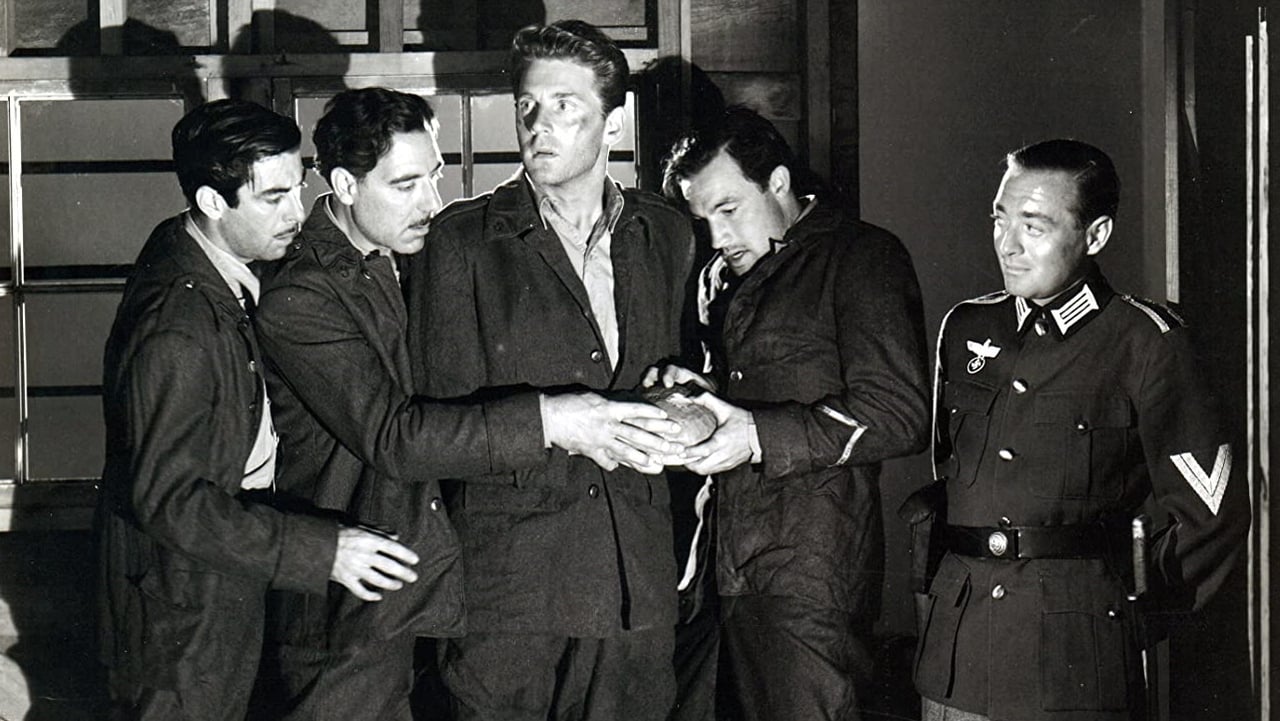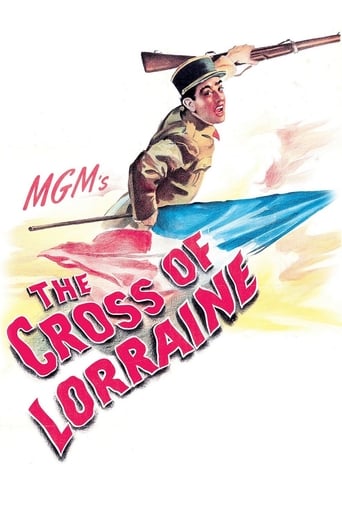



Perfect cast and a good story
Expected more
It's not great by any means, but it's a pretty good movie that didn't leave me filled with regret for investing time in it.
View MoreI enjoyed watching this film and would recommend other to give it a try , (as I am) but this movie, although enjoyable to watch due to the better than average acting fails to add anything new to its storyline that is all too familiar to these types of movies.
View MoreDespite its title, this film is not exactly a homage to the French resistance. It is mostly concerned with a military prison in Germany in which members of the French army were interned during World War 2. Good performances (Peter Lorre is delightfully sinister) keep us glued to the screen. Gene Kelly also turns in a fine portrayal, even though he doesn't sing so much as a note or dance even a step! Also on hand is Jean Pierre Aumont. (Until I looked him up on IMDb, I didn't realize what a truly amazing career Aumont enjoyed in both France and the USA, and in both territories, both on stage and in movies. This remarkable doubling up seems also to be reflected in his married life. According to IMDb, Aumont married Marisa Pavan in 1956, but the marriage ended in divorce in 1963. Yet according to IMDb – which admittedly makes no big thing of this episode – Aumont re-married Marisa Pavan in 1969 and this re-marriage lasted until Aumont died at the age of ninety (or maybe ninety-three) on 30 January, 2001). Anyway, getting back to "The Cross of Lorraine", Tay Garnett's very capable direction highlights and really brings home the violence and sadism of the times. It's certainly a most unusual film for M.G.M. It's most definitely not escapist entertainment. Anything but! And the movie is also expensively mounted, although art director Daniel B. Cathcart does make use of some very poor and very obvious backdrops at times.
View MoreYou hear "la Marseillaise " during the cast and credits ;you hear "La Marseillaise" during the whole movie;then again as the finale;Rouget De Lisle should thus be credited for the soundtrack but as he wrote it in 1792,he will not get any royalties."The Cross of Lorraine" suffers from a very low budget (the "village" where the French rebel) and a rather weak screenplay.One of these countless propaganda movies,it features French romantic young lead Jean -Pierre Aumont who really joined the "Forces Françaises Libres" .Other luminaries include the always reliable Hume Cronyn as the fellow-who-betrays-his-pals (compare with Sefton in Billy Wilder's "stalag 17");Peter Lorre ideally cast as the sadistic but dumb warden;sir Cedric Hardwicke as the noble priest who comfort his hungry brothers;Gene Kelly a soldier who has feelings of self-doubt.This first-class cast partly saves the movie .But there are colossal mistakes: all the prisoners are supposed to be French and they never speak a word in their first language (at least Aumont -obvious- and Hardwicke were fluent in French).Besides,the Germans often speak English between them ,so why an interpret?and the young resistant fighter they meet as soon as they are out of the camp? In spite of the excellent cast ,all sounds bad.
View MoreI read some reviews on IMDb that I felt were a bit too harsh for this film, calling it "propaganda" or complaining about how the Germans were all portrayed as evil. And my answer to that is of course it's propaganda and one-sided--plus, they were Nazis (and that IS bad if you paid any attention in your history classes). You need to understand the context---it was made during the war and was intended not as a perfect representation of the Nazis and the Free French movement but as way to bolster support for the war effort at home. In that respect, the film was a tremendous success and stands as one of the better wartime propaganda films made by the Americans. I respect the film for its ability to touch the viewer--ever today when it's easy to laugh at the jingoistic style of the film since the Nazis seem like a distant memory.The film begins with the war in France in 1940. When a group of soldiers surrendered after the traitorous French government made peace with the Nazis, instead of being returned home they were sent to a German prison camp and starved and beaten in attempt to break their spirits. The Nazis were all the usual stereotypical bad guys you'd expect, though it was interesting to see the German actor Peter Lorre actually playing a Nazi. Despite his background, during the war he often played French or other non-German characters--this is a rare chance to see him play a German in an American film.To me, the most interesting characters weren't the Germans or even most of the French prisoners, but the collaborators who actually worked for the Nazis and thrived. Hume Cronyn played a juicy role as a Frenchman only too happy to side with his captors and betray his people. His character was very chilling, but true to this style of film, he got his ultimate reward for his treachery (sort of like way Peter Graves in STALAG 17). Jean-Pierre Aumont, another collaborator, is another story. While he reluctantly worked with the Germans to save his skin, he could not live with himself unless he continued to resist and fight them covertly--setting up an exciting escape towards the end of the film.The film ends on a very bloody and exciting note. In fact, now that I think about it, for a Hollywood film of the 1940s, it was an exceptionally bloody and violent film--though considering the subject matter, this WAS necessary. One particularly brutal scene that actually shocked me and my wife was when Aumont stabbed a German in the throat and it was done realistically and in a close-up shot! The bottom line is that most people viewing this film probably left the theater angry and wanting to kick Nazi butt--a good sign that the film achieved its goal. In fact, the film was so patriotic and uplifting that Aumont himself left the safety of the US after finishing this film and he joined the Free French himself and earning a lot of respect for his heroism.
View MoreThis movie does provide a good and realistic view of French POW's in a German camp. The story and its characters are gritty and those are the main reasons why this movie is quite a good one.It however is too bad that it's too obvious that this movie was a piece of allied WW II propaganda. This movie was made in the middle of WW II and it's quite ridicules to see how incredibly black and white the story and its characters are at times. The Nazi's are made to look incredibly ruthless and without an heart and conscience while all the French prisoners want to do is practice their religion, be kind to each other and make the best out of it. The story and its characters are so incredibly black and white at times that the movie becomes quite ridicules and not a credible one to watch at times.The movie also obviously tries to send out a message. To POW to keep fighting and resisting against the Nazi's, to French citizens to revolt against the oppressors (according to the movie, they should even burn their houses down, just like the Russians used to do, so the Germans will find nothing but ashes along their way) and to help the resistance in any way they can. The whole message and propaganda elements in the movie are all way too obvious. It makes this movie really a ridicules one to watch at times.There are some good actors in the movie but due to the simple way of directing and storytelling, none of them really shines. The talents of Gene Kelly (in one of his first movie roles) and Peter Lorre are wasted in this movie.Still I can't rate this movie any lower than a 6 out of 10, since the story and atmosphere are quite good and also have some nice elements in it. I guess it's a pretty good though rushed, early, low budget WW II movie that intends well but is too obvious with its propaganda. Not much interesting is really happening in the movie and the action toward the ending comes too late to makes this movie a better paced- and in general a better and more interesting movie to watchA watchable movie that however by no means is a must-see or a really recommendable one.6/10http://bobafett1138.blogspot.com/
View More